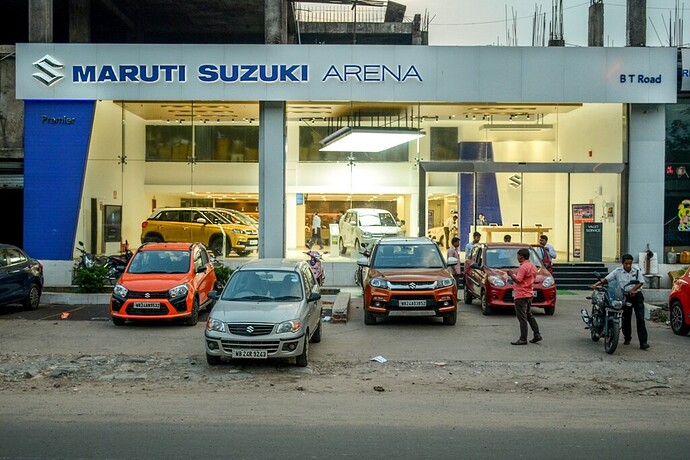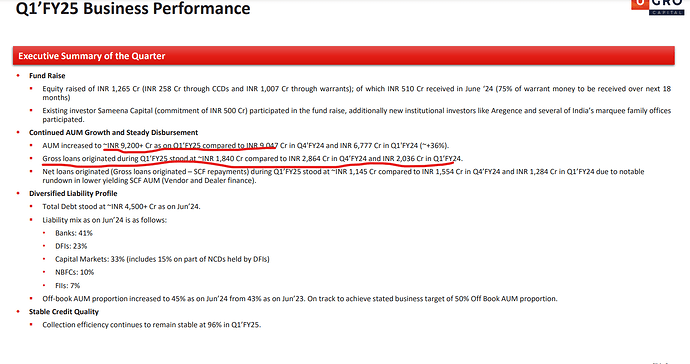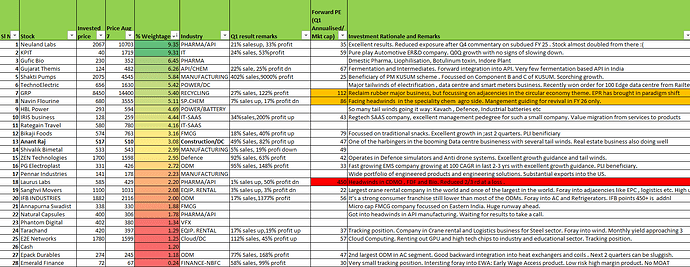Maruti Suzuki Q1 FY25 Analysis: Key takeaways!!
Maruti Suzuki remains optimistic about the long-term growth potential of the Indian automotive market, despite short-term challenges. The company acknowledges that current industry growth expectations are not very high, but believes the fundamentals in India remain intact. Management emphasized that India’s passenger vehicle market, at 4.2 million units annually, is already at a good level globally and has significant room for further growth.
Strategic Initiatives:
- Capacity Expansion: Commissioned an additional vehicle assembly line at Manesar with 100,000 units annual capacity.
- Product Portfolio Expansion: Launched the fourth-generation Swift to revitalize the hatchback segment. Plans to increase model lineup from 18 to 28 by the end of the decade.
- Network Expansion: Achieved milestones of over 3,000 Arena sales outlets and 5,000 service touch points.
- Sustainable Energy Push: Targeting to scale up captive solar capacity from 43.2 MWp to 78.2 MWp by FY25. Established a small biogas plant at Manesar.
- Technology Diversification: Continuing focus on CNG vehicles while developing EVs, hybrids, and flex-fuel options.
Trends and Themes:
- Shift towards SUVs continues, with utility vehicles + vans now comprising 45% of domestic volumes in Q1 FY25, up from 36% in Q1 FY24.
- Growing adoption of CNG vehicles, now accounting for one in three cars sold by Maruti Suzuki.
- Increasing focus on renewable energy and sustainable practices across operations.
- Rural markets performing better than urban areas.
Industry Tailwinds:
- Long-term growth potential of the Indian automotive market.
- Increasing acceptance of CNG vehicles, with CNG overtaking diesel sales for the first time.
- Government push for alternative fuels like ethanol and CNG.
- Expansion of CNG infrastructure to new geographies.
Industry Headwinds:
- Muted demand in the short term due to factors like heat waves and elections.
- Declining trend in the small car segment.
- High base effect from the previous year impacting growth rates.
- Potential commodity price volatility.
Analyst Concerns and Management Response:
-
Concern: Sustainability of margins given increased discounts and operating deleverage.
Response: Management highlighted benefits from favorable commodity prices, forex, and cost reduction efforts offsetting discount impacts. -
Concern: Declining share of first-time buyers and impact on small car sales.
Response: Management acknowledged some upward shift in first-time buyer preferences but stated this doesn’t fully explain the decline in small car segment. -
Concern: Future impact of forex movements, particularly yen appreciation.
Response: Management expects some moderation in forex benefits going forward
Guidance and Outlook:
The company maintains its export target of 300,000 units for the full year. Management expects the industry performance to be broadly in line with the indication given at the start of the year, which suggested modest growth.
Capital Allocation Strategy:
The company continues to invest in capacity expansion, new product development, and sustainable energy initiatives.
Opportunities & Risks:
Opportunities:
- Growing demand for SUVs and CNG vehicles.
- Expansion into EV segment with planned launches.
- Potential growth in rural markets.
Risks:
- Continued pressure on small car segment.
- Commodity price and forex volatility.
- Regulatory changes impacting vehicle costs and demand.
Regulatory Environment:
The company is preparing for upcoming CAFE 3 norms expected to be implemented from April 2027. Management mentioned ongoing discussions about off-cycle CO2 reducing technologies and volume derogation factors.
Customer Sentiment:
Management noted that while current demand is muted, there are customers in the market who might be waiting for auspicious periods or more attractive times to make purchases. They expect the upcoming festive season and better monsoon to potentially boost demand.
Top 3 Takeaways:
- Maruti Suzuki delivered strong margin performance despite increased discounts and operating deleverage, benefiting from favorable commodity prices and cost reduction efforts.
- The company continues to adapt to the shift towards SUVs while maintaining a technology-agnostic approach, with plans for EVs, hybrids, and flex-fuel vehicles alongside its strong CNG portfolio.
- While short-term demand remains muted, management remains confident in the long-term growth potential of the Indian automotive market and is positioning the company accordingly through capacity expansion and product diversification.



